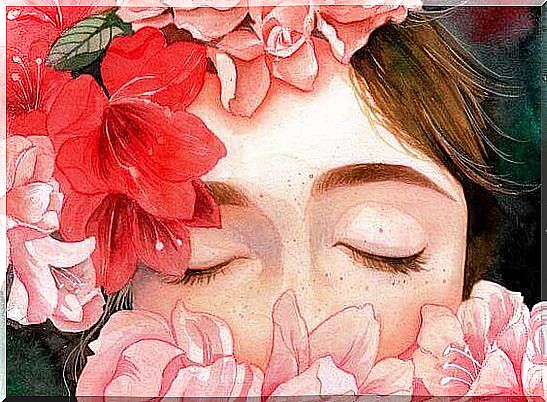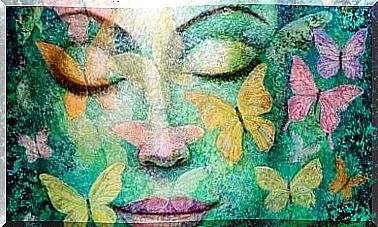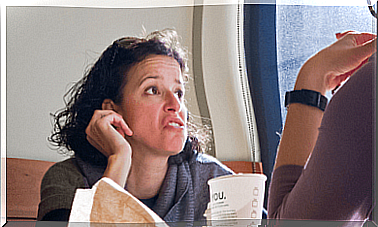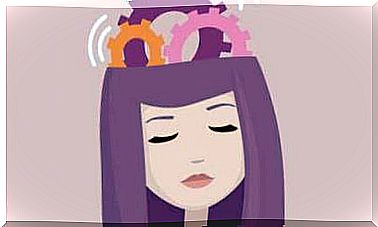Tolerating Our Emotions: The First Step To Happiness

Emotions are relatively brief physiological states that we all inevitably experience. Their role is to send you a clear message: something is happening, inside or outside of you (related to you in any case), that requires your attention. Whether positively or negatively, emotions move us and push us to take concrete action. In fact, the term emotion comes from the Latin “emotio” which means “movement or impulse”, “what moves you towards”.
Emotional states are caused by the release in our brain of certain neurotransmitters or hormones, which turn emotions into feelings. Unlike emotions, feelings last longer and can be verbalized more easily.
We can classify emotions according to their value: healthy positive emotions (joy, well-being, calm, etc.), unhealthy positive emotions (euphoria, mania, hypomania, etc.), healthy negative emotions (frustration, sadness, nervousness, pain, etc.) and unhealthy negative emotions (depression, anxiety, guilt…).
In general, it is easy to accept certain emotional states, especially if they are positive. But it is extremely difficult for us to tolerate negative emotions, whether they are healthy or unhealthy.
It seems that society has installed in our heads the requirement to always be well; it is totally unrealistic and unattainable. Emotional states come and go depending on the context, our expectations and how we process information. And to be always installed in the same emotional state of happiness is as impossible as it is utopian.

Why do we have such a hard time tolerating emotions?
We live in a culture of well-being and consumption. We are continually bombarded with unrealistic messages where the only result is to increase the pressure on our shoulders. These messages tell us that behind the product lies the solution to many ailments. They also reinforce the idea that we should always smile, no matter what. Ultimately, they overestimate the control we have over our lives, so that the guilt of sadness comes right back to us.
This irrational positivity makes us feel even worse. So, to be in a state of positive morale is such a huge requirement that it can be the main obstacle to never reaching that state. It also causes us to put a disguise to our feelings, so that others perceive only those which are socially approved.
We send each other the following message: “you shouldn’t feel this way”, “you are weak if you have anxiety or depression” or “I am not mature because things affect me too much.”
With this attitude, the only thing you get is to feel bad because you are doing badly. It is a game of redundancy which means that we never arrive at a satisfactory solution. This double “terribilitis”, as Albert Ellis said, causes negative feelings to continue and even those which were negative but healthy become unhealthy.
And it’s not just society that influences this and encourages people to mismanage their emotions, the education received in childhood is also a risk factor. Emotional intelligence is conspicuous by its absence in educational programs. For example, how many of you have heard over and over again that men don’t cry?

Strategies for learning to accept how we feel
If we learn to effectively tolerate our emotional states, whatever they are, we will feel, paradoxically, that negative emotions will dissolve on their own. It’s not about trying to fuel our emotions with more negative thoughts, act like victims, or add more fuel to the fire. What we mean is that there is no point in criticizing or judging ourselves if we are feeling anxiety, sadness, or anger.
Here are some of the strategies you can practice starting today:
Forget the “I should”
When you hear that inner voice that says “I should,” make it change with a preference or an “I would like”. We cannot continually try to control how things should be, not even our emotional states. We will not be able to modify only the thoughts responsible for its disturbance if we accept beforehand that we feel bad at that moment.
You are a human being and you must accept it as such
You are not a God, nor a superhuman, nor someone perfect. You are human and as such you will experience emotional states that will be more or less pleasant. It is important to accept the idea that we cannot fight against our own nature.

Feel the emotion in your body
Invite emotion to dwell in you. It might be uncomfortable but it won’t kill you. It’s a handful of chemistry running through your veins. Don’t give it more power, don’t dramatize. Love it, accept it, it is part of your being.
Normalize your emotional states
Just as we tell other people that we are in pain somewhere or that we are cold or hot, we can talk about our emotions when they are not positive. To tolerate emotion, you have to accept it, and accepting it also means normalizing it on all levels, even with others. Perhaps another emotion then emerges: shame. But remember that shame makes you want to hide because you have done something wrong. Is it wrong to feel bad once in a while?
Remember that your emotions, far from making you a weak person, make you be and live like a human being. Don’t hide them, live them, learn from them and let them inspire you.
Also read:









